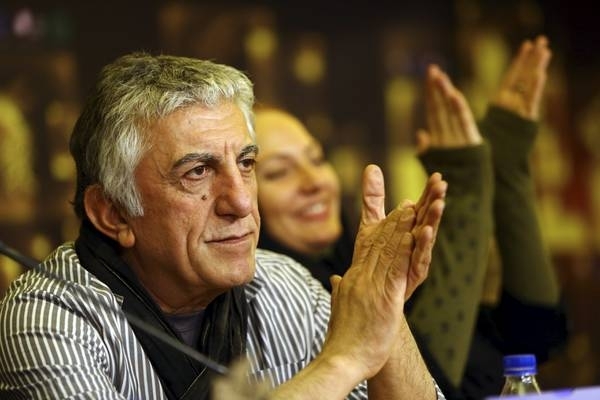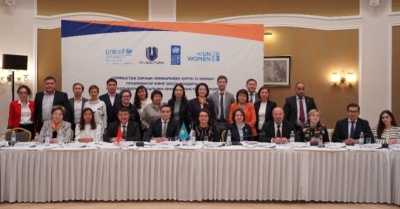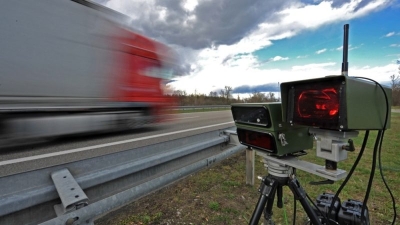Sri Lanka marks 75th independence anniversary with moves to unlock IMF bailout

Sri Lanka marked its 75th independence anniversary on Saturday as a bankrupt nation, with many citizens angry, anxious and in no mood to celebrate. President Ranil Wickremesinghe, who has started to improve some but not all of the acute shortages, acknowledged the sombre state of the nation, saying in a televised speech: “We have reached the point of destruction.” He added: “Let’s seek to heal this wound, though it’s difficult and painful. If we endure the suffering and pain for a short period of time, we can get the wound healed completely.” The country is completing prerequisites to unlock a $2.9 billion (€2.68 billion) bailout from the International Monetary Fund (IMF) and expects rapid approval from the global lender, he said. “We are successfully completing the difficult stage required to get support from the International Monetary Fund. We expect to get their consent without delay,” President Wickremesinghe said in his address to the nation to mark the 75th Independence Day. The president added: “I know that many of the decisions I have been compelled to take since assuming the presidency have been unpopular... I will continue this new reform programme with the majority of people who love this country.” [ The idyllic beach resort run by Sri Lanka’s bloated military ] [ Many parts of the world are facing a hunger crisis that requires radical action ] Many Buddhists and Christian clergy had announced a boycott of the celebration in the capital, while activists and others expressed anger at what they see as a waste of money in a time of severe economic crisis. Despite the criticism, armed troops paraded along the main esplanade in Colombo, showcasing military equipment as navy ships sailed in the sea and helicopters and aircraft flew over the city. Catholic priest Rev Cyril Gamini called this year’s ceremony commemorating independence from British rule a “crime and waste” at a time when the country is experiencing such economic hardship. “We ask the government what independence they are going to proudly celebrate by spending a sum of 200 million rupees,” he said, adding that the Catholic Church does not condone such spending of public money and that no priest would attend the ceremony. About 7 per cent of Sri Lanka’s 22 million people in the Buddhist-majority nation are Christians, most of them Catholics. Despite being a minority, the church’s views are respected. Prominent Buddhist monk Rev Omalpe Sobitha said there is no reason to celebrate and that the ceremony is just an exhibition of weapons made in other countries. Sri Lanka, effectively bankrupt, has suspended repayment of nearly $7 billion in foreign debt due this year pending the outcome of talks with the IMF. The country’s total foreign debt exceeds $51 billion (€47.16 billion), of which $28 billion has to be repaid by 2027. Unsustainable debt and a severe balance-of-payment crisis, on top of lingering scars from the Covid-19 pandemic, have led to a severe shortage of essentials such as fuel, medicine and food. Sri Lankans have also been hit by high taxes, a shortage of essential items such as medicine and fuel, and daily power cuts. The shortages led to protests last year that forced then-president Gotabaya Rajapaksa to flee the country and resign. There have been signs of improvement under President Wickremesinghe, but power cuts continue due to fuel shortages, hospitals face medicine shortages, and the treasury is struggling to raise money to pay government employees’ salaries. The economic crisis has made people angry and apathetic towards political leaders. To manage the country’s expenses, the government has increased income taxes sharply and has announced a 6 per cent cut in funds allocated to every ministry this year. Also, the military, which had swelled to more than 200,000 members amid the lengthy civil war, will be downsized by nearly half by 2030. A group of activists began a silent protest on Friday in the capital, condemning the government’s independence celebration and failure to ease the economic burden. Sri Lanka, caught in the worst financial crisis since independence from Britain in 1948 triggered by a severe shortage of dollars, has seen steep inflation, a currency plunge and its economy slide into recession. The country is focused on getting financing assurances from key bilateral creditors China and Japan. India, the third major creditor, agreed to support debt restructuring last month. Sri Lanka’s central bank estimates an economic turnaround in the second half of 2023 and inflation to reach single digits by the end of this year. – Associated Press/Reuters
Iran’s artistic community divided over its reaction to protests
German climate activists swap court date for Bali holiday
:quality(70)/cloudfront-eu-central-1.images.arcpublishing.com/irishtimes/NZMCFHUL4QQVQ7DCPQAE6YZFFE.jpg)
Charles de Gaulle’s youngest grandson lays wreath to commemorate Soviet victory
:quality(70)/cloudfront-eu-central-1.images.arcpublishing.com/irishtimes/ZGFWGLFITKV73SN5HCEB3RLDFA.jpg)
US and China: Fragile relationship blown off course by a balloon over Montana
:quality(70)/cloudfront-eu-central-1.images.arcpublishing.com/irishtimes/BCRBKQGFG5QZDMRZBOQYYQBIMY.jpg)
:quality(70)/cloudfront-eu-central-1.images.arcpublishing.com/irishtimes/M2652GSDAYWN4CPLABNYEO5BYM.jpg)



